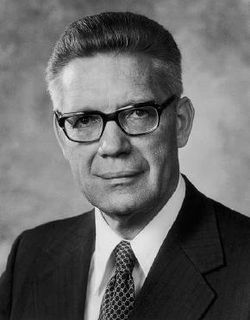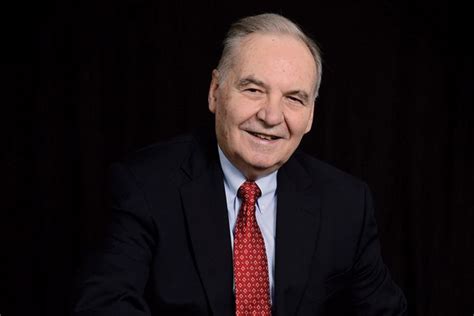A Quote by Paul Verhoeven
Jesus may have had an immense sense of importance or destiny, but he never claimed to be the Son of God.
Related Quotes
The Church of Jesus Christ of Latter-day Saints proclaims that Jesus Christ is the Son of God in the most literal sense. The body in which He performed His mission in the flesh was sired by that some Holy Being we worship as God, our Eternal Father. Jesus was not the son of Joseph, nor was He begotten by the Holy Ghost.
Arabia was idolatrous when, six centuries after Jesus, Muhammad introduced the worship of the God of Abraham, of Ishmael, of Moses, and Jesus. The Ariyans and some other sects had disturbed the tranquility of the east by agitating the question of the nature of the Father, the son, and the Holy Ghost. Muhammad declared that there was none but one God who had no father, no son and that the trinity imported the idea of idolatry.
So what Jesus taught must be understood from the deepest level and that is one of the best sayings to show that he was talking in that way. In the book Revelations from Christ, I found out something that Yogananda said. That Jesus had said son of men and son of God, and people often misunderstand so sometimes the translations themselves are wrong for that reason. So when he said son of man he meant his human body and personality. When he said son of God, he meant the infinite Christ consciousness with which he'd obtained oneness.
A Christian should know that God is a Creator, that God is an entity that is all-powerful and all knowledgeable, God is everywhere and God is an entity filled with grace, love, compassion and forgiveness, that Jesus is the son of God and Jesus came on earth to explain to people in a very revolutionary way the nature of God, that God was not a stern judge who was keeping track of 600 or so rules and regulations that you had to keep in order to be acceptable to God.
As far as this life is concerned, [Jesus] was born of Mary and of Elohim; he came here as an offspring of that Holy Man who is literally our Father in heaven. He was born in mortality in the literal and full sense as the Son of God. He is the Son of his father in the same sense that all morals are the sons and daughters of their fathers.
It wasn't shared social status or ethnicity that brought Jesus' followers together either, nor was it total agreement on exactly who this Jesus character was - a prophet? The Messiah? The Son of God? No, there is one thing that connected all these dissimilar people together it was a shared sense of need: a hunger, a thirst, a longing. It was the certainty that, when Jesus said He came for the sick, this meant Jesus came for me.






































